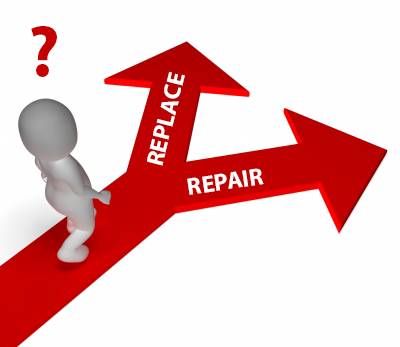Repair or Replace: What is the best option for my hydraulic valve?
Even the most reliable and well-made hydraulic valves can become fatigued and break down. A damaged valve can often stop a hydraulic system from operating completely which will cause problems and damage productivity. Many people wonder whether they need to replace their hydraulic valve or whether repairing it will do the job. The costs associated with repairing and replacing valves can be expensive. You do not want to spend money on a new valve if it could be repaired for a fraction of the price. Equally, you do not want to keep paying for repairs, which can all add up, if it would be cheaper to replace the whole valve in the long run.
Repair:
Repairing a hydraulic valve is a more cost-effective solution. Repairs will cost a lot less than making and delivering a brand-new valve, so if only part of your valve is faulty, it can be much more cost and time effective to simply repair it.
Sometimes hydraulic valves suffer premature failure for very minor reasons. In this case, many of the other parts are completely fine and can survive and continue to work for much longer. If only a small part of your hydraulic valve has caused your machine to stop working, repairing it is the best option. Valves can fail for any number of reasons and can be down to something as small as a faulty screw or bolt or a broken seal.
People often believe if a hydraulic valve has failed the spool, which is the core of the valve, is damaged and is the reason why. This leads people to believe replacing it is the only option. However, the spool is often fine, which is why we encourage people to try hydraulic valve repair before deciding to replace your valve.
Technicians will disassemble your valve and thoroughly clean and inspect it to see what the problem is. Sometimes everything can be fine within the valves and it is something as simple as replacing the soft seals. Allowing the valve to be opened up for repair offers the opportunity for anything that is failing or may fail soon to be fixed or replaced, which means that your machine is not likely to fail again any time soon. This is because hydraulic valves are usually repaired to an as new state.
Repairing also allows you to see which areas might be taking the most wear and tear, and therefore, might not be up to scratch. This allows technicians to identify any of these areas and replace the affected parts with much better and more effective ones, meaning this issue shouldn’t be a problem again. In this instance, if you replaced a hydraulic valve outright for the same model, you could continuously have the same issue and not know why, which would cost you a fortune in replacements and lost productivity.
If you need a new valve for your machine and it is not available but that machine is critical and so your production line is down, a repair can be the most practical solution, even if the cost is high. The cost of losing productivity for a long period could be more detrimental to your business than a higher cost for repairing the machine and having it back up and running.
Replace:
If a hydraulic valve is extremely damaged from a lot of wear and tear, or an accident or issue with the machine, replacing the whole valve can be the best option. If most parts of the valve are damaged it may be more expensive to repair each part than it would be to replace the whole thing. Also, if some of the undamaged parts of the valve are extremely expensive to manufacture individually, it could be cheaper to replace the whole valve instead. In these cases, the more economical option is to replace the whole hydraulic valve.
If a hydraulic valve is getting old or has been used extensively it can keep failing. If it keeps failing, especially if each time it is for a different reason, it is likely time to get a replacement. Even the most robust and reliable valve can get old and tired after repeated use. If you repair a part of the valve but then something else fails, and you repair that and it fails again, and so on, in the long run, you can be spending a lot more money than if you simply replaced the whole valve. In this instance, it would also be more cost-effective to replace your valve.
If a hydraulic system needs a different type of valve for it to perform properly of more effectively, if the wrong one valve was being used to start with or if a machine’s specifications or usage changes, you will need to replace the valve. There are five main types of hydraulic valves which are interchangeable with most types of hydraulic equipment. Valves in hydraulic equipment systems regulate and control the flow of hydraulic liquid. There are different requirements for fluid flow so it is important the correct valve is used for the correct purpose. If you intend to use your machine for a different purpose or specification, then you may need to replace your valve. You may have previously used a flow control valve, which did the job fine, but now you may need better control over the hydraulic flow in two directions in which case you may be better with a solenoid valve. A technician would be able to inform you whether a valve you have needed replacing and which valve is the best option for you.
What is the best option for me?
Usually, people will want to go for the more economically viable option, which makes sense. Whether this would be repairing or replacing is dependent on factors such as the condition of the valve, the type of the valve, the cost of parts compared to replacement and the availability of valves and parts. If you still are unsure which is the best option for you, one of our technicians will be able to offer you advice, so get in touch today.









